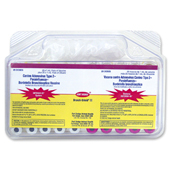Vaccination is not a one-size-fits-all
endeavor, and recommendations depend on a dog's age, lifestyle and
overall health. The best person to determine which vaccines are
necessary is a veterinarian who is familiar with your dog and the incidence
of canine diseases in your part of the country.
"Determining when to vaccinate a dog is almost as confusing as deciding what to vaccinate him against, but some general rules do apply."
That said, American Animal Hospital Association guidelines are available to help make sure that dogs
get the vaccines they need but are not over-vaccinated. The following
is a summary of which canine diseases have commonly available vaccines
and the dogs that should routinely receive them. If your pet has
had a severe adverse reaction to a particular vaccine, is ill or very
aged, or has an out-of-the-ordinary lifestyle your veterinarian may
alter his or her recommendations accordingly.
All dogs should be vaccinated against:
- Rabies
- Distemper
- Adenovirus (also called
hepatitis)
- Parvovirus
All dogs except those that have virtually no contact with other dogs should also receive vaccines for:
- Parainfluenza
- Bordetella bronchiseptica (a common cause of Kennel Cough)
If you live in or are planning
to travel to an area where these diseases are a problem, your vet may
recommend vaccinating against:
Other vaccines are available but should
only be considered under special circumstances.
Often, protection against several diseases
is offered in a single inoculation. For example, a DAPP vaccine
protects against distemper, adenovirus, parvovirus
and parainfluenza. Some of these combination vaccines can
be referred to in a confusing manner. For example, when someone
talks about the "distemper" vaccine he or she might actually be
referring to a DAPP combo vaccine, and a "kennel cough" vaccine
could include Bordetella bronchiseptica with or without parainfluenza.
Dog Vaccination Schedules

Determining when to vaccinate a dog
is almost as confusing as deciding what to vaccinate him against, but
some general rules do apply. Puppies usually need their first
vaccines at about seven to eight weeks of age and then should return
to the veterinarian's office for boosters every three weeks for a
total of three or four visits. Most puppies need at least three
DAPP vaccines, two Bordetella vaccines, and one rabies vaccine
during these visits to be protected for a full year.
The next vaccine visit should occur
approximately one year after the last puppy shots were given.
During this appointment your dog will usually receive boosters for all
the vaccines that he received as a puppy, unless his risk factors have
changed. From this point on, some vaccines can be boosted every
three years (e.g., rabies and DAPP in many parts of the country) while
others like Bordetella may require annual revaccination.
In fact, dogs at extremely high risk for Bordetella may even
need to be revaccinated every 6 months.
If you adopt an adult dog with an unknown
vaccination history, he should see the veterinarian two times, three
to four weeks apart for his initial vaccines and boosters. Then,
he can continue with the regular adult dog revaccination schedule.
Regardless of their vaccine needs, all dogs should be examined by a
veterinarian at least once a year.
Vaccine titers are an option for some
adult dogs in lieu of routine booster vaccines. Your veterinarian can
draw a small blood sample and send it to the lab to evaluate your dog's
antibody levels against a particular disease. If your dog's
levels are high enough, he probably has enough immunity to protect him
from the disease in question, and revaccination may not be necessary.
The above is provided for information purposes only and should not be used for the diagnosis or treatment of any condition.
This information does not cover all possible variables, conditions, reactions, or risks relating to any topic, medication, or product and should not
be considered complete. Certain products or medications may have risks and you should always consult your local veterinarian concerning the treatment of
your pet. Any trademarks are the property of their respective owners.